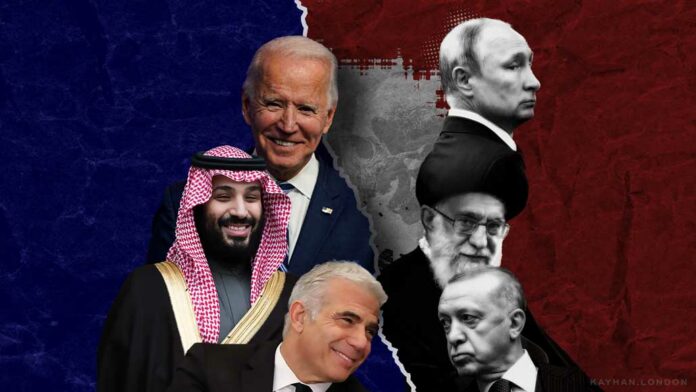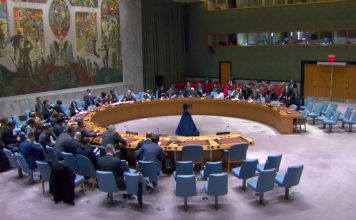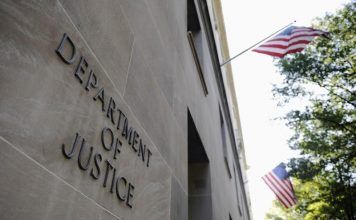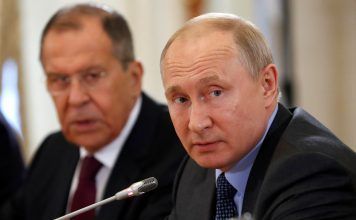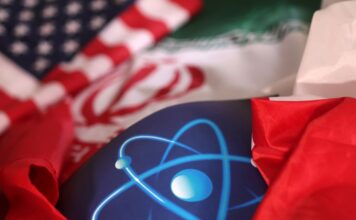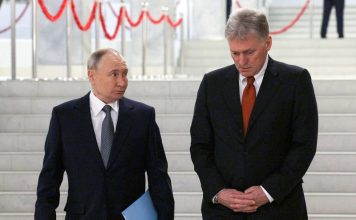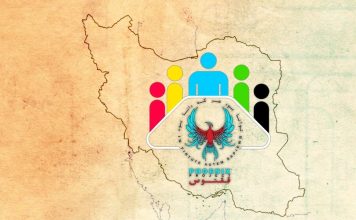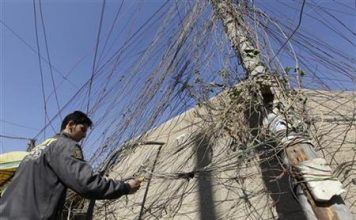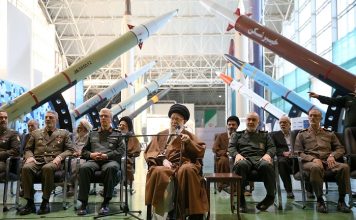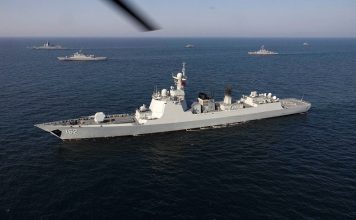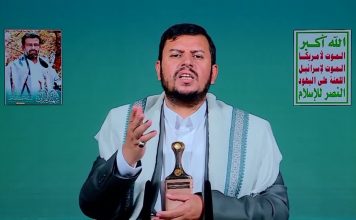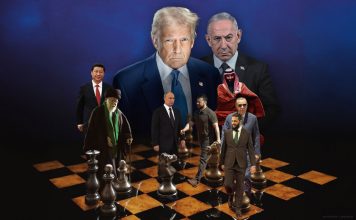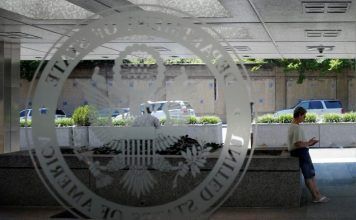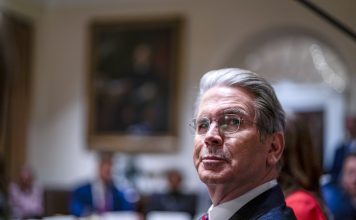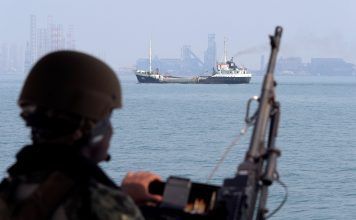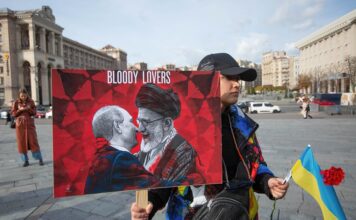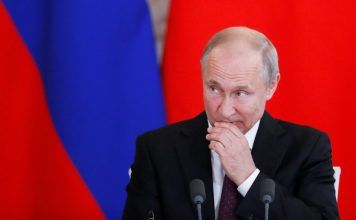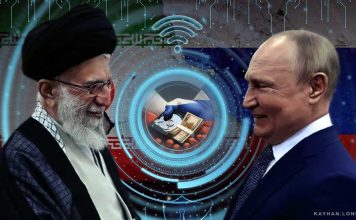By Ahmad Rafat
The ongoing efforts to revive the 2015 Joint Comprehensive Plan of Action (JCPOA), the Iran nuclear deal, bring to mind the story of Lazarus — in the Gospel of John (John 11:1-4) in the New Testament — who, four days after his death, was brought back to life by Jesus Christ.
On July 26, Josep Borrell, High Representative of the European Union for Foreign Affairs and Security Policy, said he had submitted a new draft text to revive the JCPOA.
Mr. Borrell’s proposal could be a last-ditch attempt to keep open nuclear negotiations that have hit various roadblocks in the past 15 months.
[aesop_image img=”https://kayhanlife.com/wp-content/uploads/2022/07/2022-06-25T122017Z_298252503_RC20ZU950ZWE_RTRMADP_3_IRAN-NUCLEAR-BORREL.jpg” panorama=”off” credit=”Deputy Secretary General of the European External Action Service (EEAS), Enrique Mora, attends a joint news conference between Iran’s Foreign Minister Hossein Amir-Abdollahian (not pictured) and High Representative of the European Union for Foreign Affairs and Security Policy Josep Borrell, in Tehran, Iran June 25, 2022. REUTERS./” align=”center” lightbox=”on” captionsrc=”custom” captionposition=”left” revealfx=”off” overlay_revealfx=”off”]
“I have now put on the table a text that addresses, in precise detail, the sanctions lifting as well as the nuclear steps needed to restore the JCPOA,” Reuters reported, quoting Borrell. “It is now time for swift political decisions to conclude the Vienna negotiations based on my proposed text and to return to a fully implemented JCPOA immediately.”
“If the deal is rejected, we risk a dangerous nuclear crisis against the prospect of increased isolation for Iran and its people,” Borrell warned.
Borrell and his chief of staff Enrique Mora, the lead coordinator of the nuclear talks, have said the proposal could offer a last chance to the U.S. and Iran to strike a deal.
There has been no progress in the talks, despite repeated warnings by several diplomats in recent weeks that “the window of opportunity is fast closing.”
The situation will most likely not change, barring a miracle.
Shortly after receiving the new draft text by Josep Borrell, sent to all parties involved in the nuclear negotiations, Ali Bagheri-Kani, Iranian Deputy Foreign Minister and lead negotiator in the nuclear talks, tweeted on July 26 in English: “We, too, have our own ideas, both in substance and form, to conclude the negotiations which would be shared.”
Statements by Mr. Bagheri-Kani and other senior Iranian officials suggest that they do not want to sign a new nuclear deal which might help the country’s economy but not align with the Islamic Republic’s policies.
There is a powerful political faction in Iran that argues that the only way to ensure the survival of the Islamic Republic or to deter foreign aggression is for the country to be part of the nuclear club. They believe that Iran must have an atomic bomb or the technology to make one and develop long-range missiles to deliver nuclear warheads.
Before it invaded Ukraine, Russia played the role of mediator in talks to revive the JCPOA, but it has now become a staunch opponent of any agreement, fearing it could bring Iran closer to the West. Russia has become a pariah state after its military attack on Ukraine. As a result, its economy has suffered under international sanctions.
Russian President Vladimir Putin’s visit to Tehran on July 19, his first official foreign trip since the war in Ukraine, shows that he plans to use the Iran card in his game against the West. Mr. Putin met Iran’s Supreme Leader Ayatollah Ali Khamenei and President Ebrahim Raisi during his visit to Tehran.
Any agreement with the West would enable Iran to access energy markets. Many European countries heavily depend on Russian oil and gas; that is Moscow’s only leverage against the West. Europe’s energy needs for Russian oil and gas increase significantly in winter.
Some people in the West do not believe that reviving the JCPOA is one of the Islamic Republic’s objectives.
ANALYSIS: Iran’s Ruling Factions Are Deeply Divided On Nuclear Deal
In an interview with CNN at the Aspen Security Forum on July 22, the head of the British Intelligence Service (MI6), Richard Moore, said: “I do not think the Supreme Leader of Iran wants to cut a deal,” adding that he was “skeptical” of Ayatollah Khamenei’s motives.
“I think the deal absolutely is on the table and the European powers and the administration here are very clear on that, and I do not think that the Chinese and Russians on this issue would block it. But I do not think the Iranians want it,” Mr. Moore added.
Brett McGurk, The U.S. National Security Council’s coordinator for the Middle East and North Africa, told a group of think tank experts last week that negotiations to rekindle the Obama-era pact are “falling apart because Iran cannot decide,” the U.S.-based news website Axios reported on July 27.
According to McGurk, Iran wants the U.S. “to add something to the pot” to give those in the Tehran government who want a deal some leverage in their attempts to persuade Ayatollah Khamenei, but “we will not do that,” the report added.
There are others like former Israeli Prime Minister Ehud Barak (in office from 1999 to 2001) who believe that even military action cannot stop Iran’s nuclear program, let alone an agreement.
In an opinion piece published in the July 25 issue of Time magazine, Mr. Batak said: “This summer, Iran will turn into a de facto threshold nuclear state.”
“It is too late to stop it by a surgical attack,” Barak warned. “Israel and the U.S. can operate over the skies of Iran against this or that site or installation and destroy it. But once Iran is a de facto threshold nuclear state, this kind of attack cannot delay the Iranians from turning nuclear,” said Barak. “It is too late to stop it by a surgical attack.”
Foreign Minister Hossein Amir-Abdollahian seems to be one of the few senior Iranian officials to remain hopeful about the outcome of the nuclear talks.
During a meeting with the Vatican’s Cardinal Secretary of State, Pietro Parolin, and Secretary for Relations with State, Archbishop Paul Richard Gallagher, in Vatican City on July 13, Mr. Abdollahian assured the representatives of the Holy See that Iran was “serious about achieving a good and lasting agreement on lifting all sanctions in the [Vienna nuclear] talks.”
Many senior Iranian politicians, such as Kamal Kharrazi — the head of the Strategic Council on Foreign Relations, who served as Foreign Minister from 1997 to 2005, and is currently a senior advisor to Ayatollah Khamenei — believe that Iran must be a member of the nuclear club and argue that the JCPOA is useless.
In an interview with Al-Jazeera TV on July 17, Mr. Kharrazi said: “Iran has the technical means to produce a nuclear bomb, but there has been no decision by Iran to build one.”
“More and more people in Iran are asking whether the country stands to gain anything from signing the JCPOA,” Kharrazi noted. “Let’s assume we sign the JCPOA. Will it then change Iran’s economic ties with the West? It does not seem so because large Western companies have particular relationships with the U.S. The American [government] warns those companies that it severs ties with them if they violate the sanctions and start doing business with Iran.”
“There are two more years left of [Joe] Biden’s presidency,” Kharrazi noted. “Mr. Biden is having many domestic problems. The Republicans will most likely take over [the government] and probably pull the U.S. out of any new nuclear agreement. Therefore, if we do anything that slows down the country’s economy in the next two years, creating another crisis, we face a serious question; what is in Iran’s best interest?”
In an interview with the Islamic Republic of Iran Broadcasting (IRIB) Channel 2 TV on July 17, Mohammad-Javad Larijani, a senior advisor to Ayatollah Khamenei, who also served as the Secretary of the Judiciary’s High Council for Human Rights from 2004 to 2019, echoed Kamal Kharrazi’s declaration that Iran could develop a nuclear weapon.
“No one can stop Iran if it decides to build a nuclear weapon,” Mr. Larijani said. “Nuclear capability is not something that anyone can destroy by bombing.”
In an interview at the Aspen Security Forum on July 22, Israeli Defense Minister Benny Gantz said the war against Iran should be the last resort.
“Should we jump to war at the first opportunity we have? No,” Mr. Gantz said at a public interview by The Atlantic at the Aspen Security Forum. “Should we be able to conduct military operations to prevent it [a nuclear Iran] if needed? The answer is ‘yes.’ Are we building the ability [for war]? Yes. Should we use it as the last case? Yes, and I hope we will get US support.”

